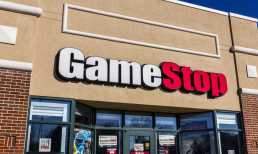First off, several regions of the country – and some major retailers – are making moves to reopen nonessential retail. The issue is whether these measures address the needs of smaller retailers. In Texas, for example, nonessential retail operations can open on a low-touch basis. Starting this Friday (April 24), all payments must be handled online or via phone, and all contact with customers must be minimal. Employees must wash their hands after each interaction and all purchased items must be sanitized.
Big retailers such as Best Buy have already implemented these changes in states where curbside pickup is allowed. The eCommerce sales tracking company Thinknum reports that the company has kept an estimated 70 percent of its sales despite closing 40 locations. It has seen a 250 percent uptick in online purchases, with 50 percent of those coming from curbside service. According to the Dallas Morning News, Nordstrom has been providing curbside pickup in Texas, and JCPenney will now add it.
Will the move help Main Street? Retailers applauded the spirit and intent of limited reopenings. But amid a general frustration with the federal programs already in place, SMBs are still facing a harsh reality. For instance, Agatha Kulaga, co-founder and CEO of the small New York-based bakery chain Ovenly, told CNBC that she had to furlough 67 employees and fears for the future of her chain.
“Some people are suggesting, ‘Well, just pay people to stay at home,’” Kulaga said. “But that does not help my business survive. The whole point of the money for small businesses, when we were applying, was to get this money to be able to reopen and to be able to cover our costs for the time that we were not making any sales.”
On the mass market side, Walmart has become more active over the past week in terms of suggesting meal plans, wardrobe choices and other product usage. Over the weekend, it addressed worker safety in preparation for limited reopenings.
Advertisement: Scroll to Continue
“Starting Monday, you’ll be required to wear a face covering at work. You can provide your own as long as it meets certain guidelines, or we will provide you with one as you pass your associate health screen and temperature check,” read a company statement. “We’re also aware there may need to be exceptions to this policy based on local laws and individual health needs. We hope this step will promote safety and consistency across all of our facilities and be of comfort to our customers and members. However, it’s important to remember that face coverings are simply an additional health precaution. They do not guarantee against the spread of this virus, and they do not replace the most important steps you can take to keep yourself and others safe: 6-20-100. Whether at work or elsewhere, practice six feet of social distancing whenever possible. Regularly wash your hands with soap for 20 seconds. And if you have a temperature of 100 degrees or higher, stay home.”
Target has also focused on worker and guest safety. Last week, it implemented formal social distancing measures as well as face masks and gloves for team members to wear on the job, along with possibly setting limits on the number of people allowed in stores.




